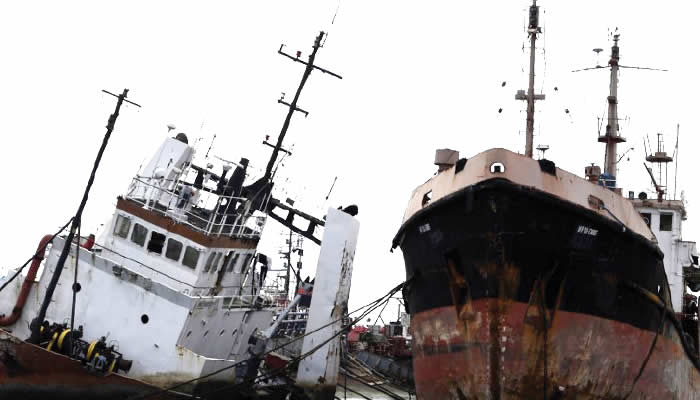Lagos, a bustling metropolis on the coast of Nigeria, faces a looming crisis driven by the converging forces of climate change and rapid urbanization. The city’s vulnerability stems from its low-lying coastal geography, coupled with unchecked development and inadequate infrastructure. Over the past half-century, over 84% of Lagos’s coastline has retreated due to erosion, rising sea levels, and human activity, painting a stark picture of the environmental challenges ahead. Projections indicate a potential sea level rise of up to 3 meters along the state coastline, a dire prediction for a city whose average elevation is only 5 meters above sea level. This escalating threat poses a significant risk to the city’s infrastructure, agricultural lands, and businesses, potentially reshaping the landscape and displacing communities.
The changing climate is also manifesting in increasingly unpredictable and excessive rainfall patterns. Major urban centers across Lagos, including Ikeja, Badagry, Ikorodu, Lagos Island, and Epe, are projected to experience intensified flooding. The city’s limited drainage infrastructure is ill-equipped to handle these heavy downpours, exacerbating the risk of widespread inundation. Recent history bears witness to the devastating consequences of such events, with frequent and severe flooding impacting hundreds of thousands of residents and causing millions of dollars in property damage. The 2024 flood, triggered by a 10-hour rainfall, serves as a grim reminder of the destructive power of these events, particularly in affluent areas like Lekki, Ikoyi, and Ajah.
The economic repercussions of climate change on Lagos could be catastrophic. Estimates suggest a potential GDP reduction of 6-30% by 2050, a significant blow to a rapidly developing economy. Furthermore, nearly 7,000 assets, valued at approximately $17.4 billion, are exposed to climate risks, with the majority classified as highly vulnerable. Key industries, such as tourism, leisure, and entertainment, which contribute significantly to the state’s GDP, face substantial threats from coastal erosion and rising sea levels. The potential loss of revenue and livelihoods underscores the urgency of addressing these challenges.
The rapid population growth in Lagos, exceeding 24 million residents, has fueled unplanned urban sprawl, encroaching upon vital natural defenses against flooding. Wetlands, crucial for flood mitigation, have been degraded and reclaimed for development, severely compromising their ability to regulate floodwaters. This encroachment, driven by the demand for housing and infrastructure, has led to deforestation and increased surface runoff, further amplifying the flooding problem. The loss of these natural buffers highlights the unintended consequences of unchecked urban expansion.
Compounding these challenges is the issue of pollution, particularly from solid waste. The waste sector accounts for a substantial portion of the state’s total emissions, contributing to the overall environmental burden. The improper disposal of waste exacerbates flooding by clogging drainage systems and impeding the flow of water. Addressing this issue requires a concerted effort to improve waste management practices and promote sustainable waste disposal solutions.
The confluence of these factors – coastal erosion, rising sea levels, intensified rainfall, inadequate infrastructure, rapid urbanization, and pollution – paints a concerning picture of Lagos’s future. The city’s vulnerability to climate change demands a comprehensive and multi-faceted approach to mitigation and adaptation. Protecting and restoring natural ecosystems, investing in robust drainage infrastructure, implementing sustainable urban planning strategies, and promoting responsible waste management are crucial steps towards building a more resilient Lagos. Addressing these challenges requires collaboration between government agencies, private sector stakeholders, and local communities to ensure the long-term sustainability and prosperity of this vital economic hub.














